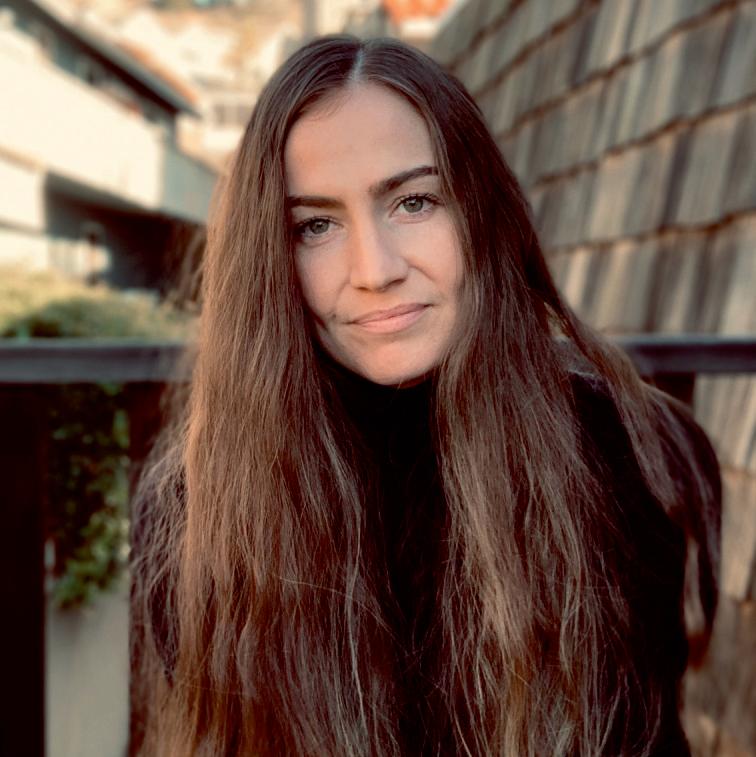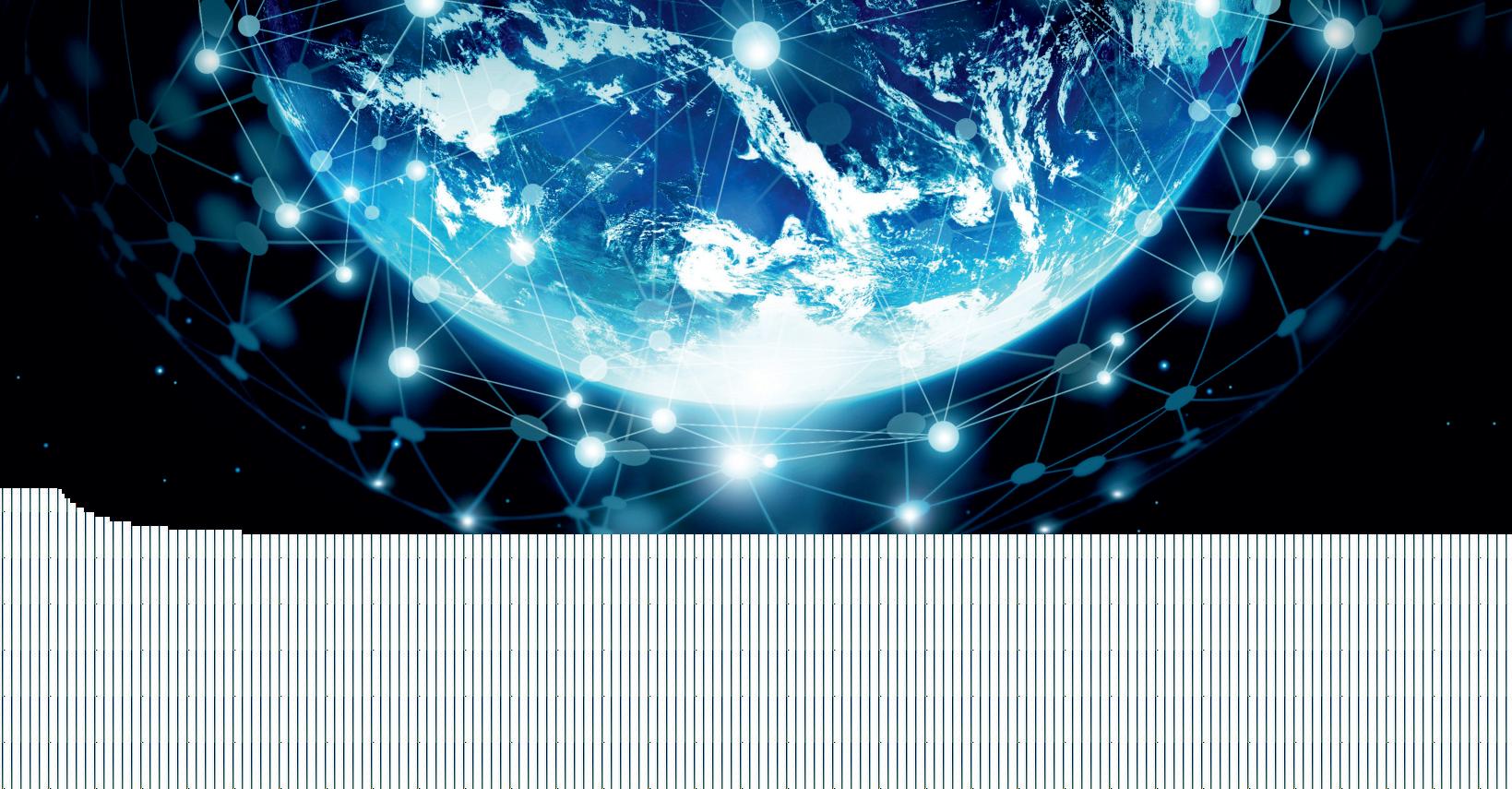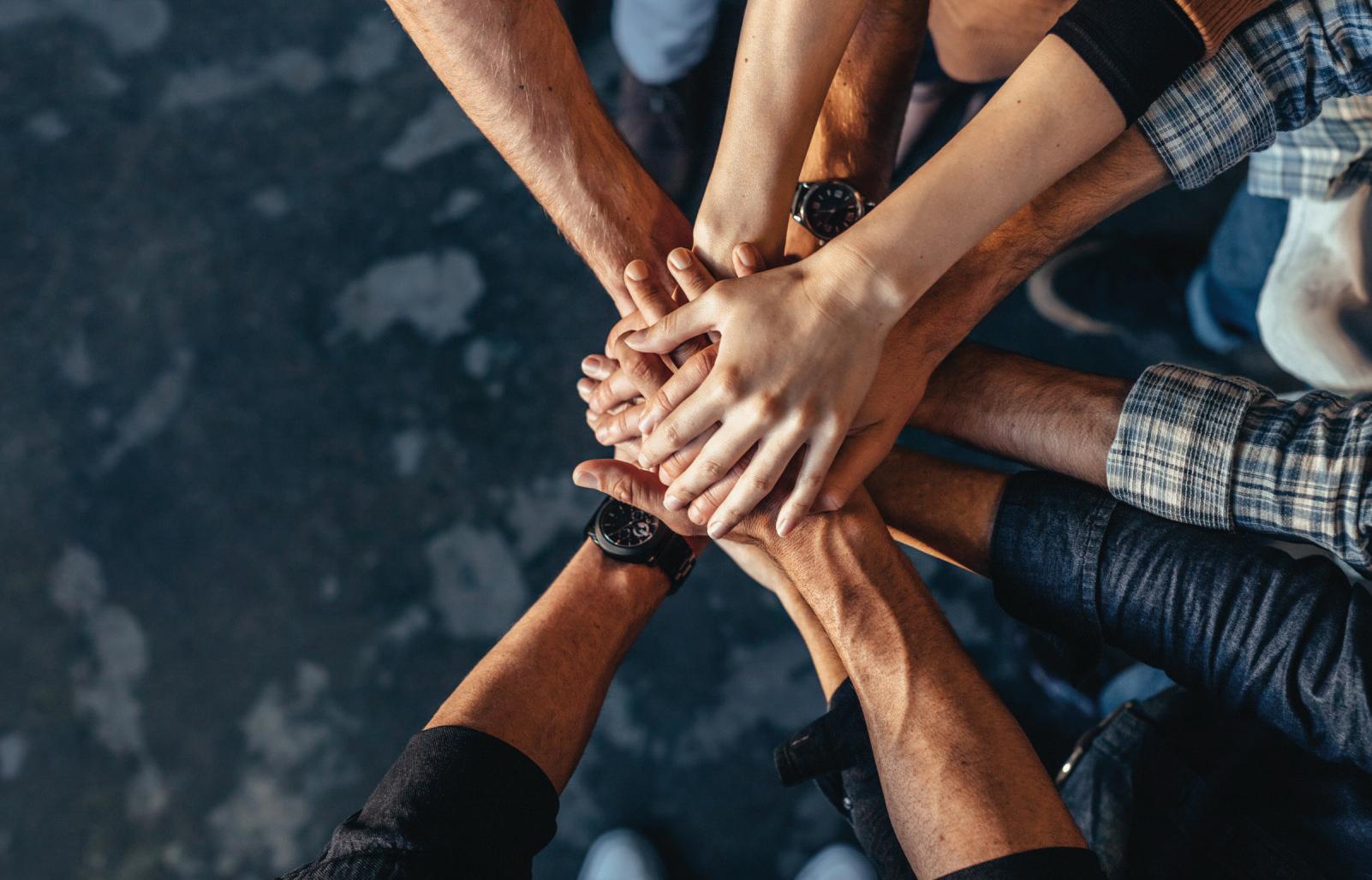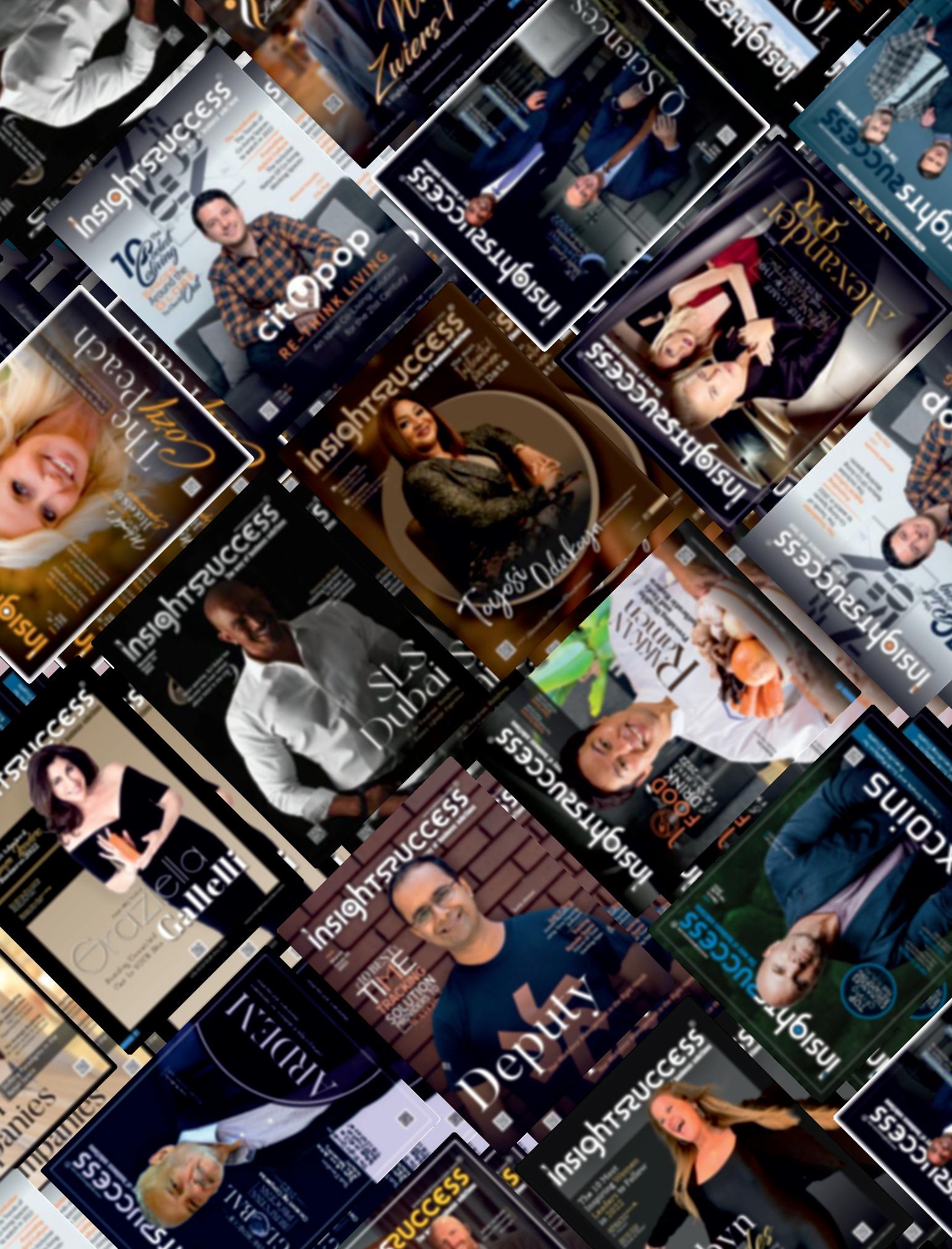










-Alaya Brown
Aswenavigatethecomplexitiesofarapidlyevolving
global landscape, few individuals such as Taylor Tessendore is demonstrating the foresight, resilience,andclarityofvisionthatconsistentlybringstothe table With a career marked by bold decisions and groundbreaking strategies, she has not only driven organizationalgrowthbutalsoredefinedwhatitmeanstolead withintentionandempathy.
In Insights Success recent edition of The Most Impactful and Visionary Leader to Look For in 2025,sheemergesasa powerful force guiding industries toward sustainable progress, human-centric innovation, and inclusive leadership. Her approach seamlessly blends data-driven insight with a deep understanding of societal needs, making her a rare and effective changemaker.Whether empowering teams, driving ESG initiatives, or leveraging emerging technologiesforthegreatergood,herinfluencereverberates farbeyondboardrooms.
Herjourneyisamasterclassinvision,courage,andexecution inspiringanewgenerationofleaderstothinkbeyondprofits and prioritize impact. With a deep commitment to integrity and collaboration, she is not just leading change; she is shapingthefuture.
As we look ahead to 2025, all eyes are on this dynamic and purpose-driven leader whose work is leaving an indelible mark across industries and communities. Taylor Tessendore isnotjustsomeonetowatch,she’ssomeonetofollow.
HappyReading!

F E A T U R I N G

From Crisis to Clarity: The Awakening Journey of Taylor Tessendore
Building a Mindful Strategy Framework for Sustainable Business Growth
22 How Wellness Culture Consulting Transforms Employee Engagement and Retention?

Art
Business
Business
Digital
Co-designer
Marketing



















The better you know yourself, the higher your self-awareness, the more you'll uplift inspiration in those you lead. The greatest souls are the greatest leaders of all time.

Few leaders more exemplify the subdued force of introspection than Taylor Tessendore is at the vanguard of an expanding movement that is combiningtraditionalwisdomwithcontemporaryleadership, redefiningwhatitmeanstobealeaderinthemoderneraby promotingconsciousnessasopposedtoimposingpower Her path in becoming a globally renowned wellness and leadership strategist starting with hardship rather than with aspiration. She delved deeply into meditation, holistic treatment, and spiritual alignment after a life-threatening illness serving as the impetus for a profounfing personal awakening.
A leadership philosophy based on harmony, presence, and purpose sprang out of that furnace Her impact is multidisciplinary and cross-continental, directing individuals,groups,andorganizationstocultivateresilience, well-being, and genuine leadership from within. From creating wellness centers for alternative schools to assisting organizations in obtaining millions of dollars in wellness financing,herworkisexemplifyingherexceptionalcapacity to convert arcane spiritual ideas into useful, significant outcomes.
Herleadershipapproachisbasedonherbeliefinthe"lawof the least effort," an age-old philosophy that has recognizing rewards that are in line with nature's innate intelligence and defies conventional notions of struggle. She is emphasizing that being a leader is more about developing the energy and awareness that will keep inspiring people than exerting control.Tessendoreisofferingauniquedepthofinsightthat comesfromlivingexperienceratherthantheory,whethershe is directing silent retreats or influencing corporate culture. Sheisservingasaconstantreminderthatgenuineleadership beginsontheinsideofeveryplacesheenters.
Tessendore's path to wellness leadership began with what couldhavebeenanending.Anear-deathexperiencethatleft herunabletowalkupstairs,tastefood,smell,orbreatheeasily becamethesourceofthemostprofoundtransformationofher life. Instead of accepting medical limitations, she made a decision that would define her approach to everything that followed:shewouldhealherselfusingholisticmethods,and shewouldn'tstopuntilshereachedhergoal.
"Insixmonths,Iwentfromnotbeingabletowalkupaflightof stairstohikingtenmilesononeofthehardestoutdoortreksof my life with intense elevations. I gained back all senses I had previously lost. My body, mind and spirit were restored to ultimateharmony."sherecalls.

You are the container holding your team, you're a unit. What you are, your level of consciousness can either raise the group or lower it. The power you hold is a sacred duty, so staying in harmony is essential.
But the physical healing was just the beginning. Following herrecovery,sheembarkedonwhatshedescribesasthemost transformative experience of her life: six months of relative seclusion, meditating twelve hours a day and spending monthsincompletesilencefocusedsolelyonyogaasanasand pranayama.
"I remembered feeling slight nerves at first as my mind realized what I had committed to, but there was this force within pulling me to go further and trust. It was intense, but thegreatestdecisionI'vemade."shereflects.
Fromthisintensivespiritualpractice,Tessendorereferredto her foundational principle: the law of the least effort. This concept, rooted in ancient wisdom traditions, became her blueprintforbuildingwhatsheterms"wealthconsciousness, affluenceandimpactfulsuccess."
"The moment I awakened into knowing my pure potential, my universe drastically transformed with my success becoming expansive. My greatest dreams started being fulfilled more easily and effortlessly At first my rational mind couldn't believe,butitworks."sheexplains.
Her approach is a challenge to conventional notions of struggleandeffort.Instead,sheadvocatesforalignmentwith what she calls "the organizing powerof nature” a state of flowwheredesiresmanifestthroughtrust,faith,andpatience ratherthanforce.






In six months, I went from not being able to walk up a flight of stairs to hiking ten miles on one of the hardest outdoor treks of my life with intense elevations. I gained back all senses I had previously lost. My body, mind and spirit were restored to ultimate harmony.
"Do less and you'll achieve more, then evolve to do nothing and gain everything. Write down a short-term success goal something your mind believes is possible. Then let go of trying, believe it will come when you release attachment and allyoudoislookatthepieceofpapereachdayasmanytimes asyoulike."sheadvises,offeringapracticalexercise
Tessendore'sprofessionaljourneybeganatfourteenwhenshe was approached to become a peer counselor, leading to her firstvolunteerexperiencewithamentorshiporganizationfor underserved children. That moment of selfless service, she says,crackedherheartopenandignitedafirewithinherthat continuestoburntoday
"The amount of unconditional love I felt for these individuals changed the way I viewed everything. I knew with certainty my purpose was to help and heal from that moment on." she remembers.
This early calling became a multifaceted career spanning psychotherapy, transformation coaching, retreat leadership, andteachingancientyogapractices.Heruniqueapproachled to invitations as an international speaker addressing the impactofspiritualityandwellness,andshedesignedwellness centers for alternative education schools to increase belonging,empowerment,andmindfulness.
Perhaps most significantly, she has worked with individuals and teams to secure over four million dollars in support of transformingwellnessfuturesinorganizationsatestamentto her ability to translate spiritual principles into tangible, institutionalchange.
Tessendore'sleadershipphilosophyfocusesonwhatshecalls "thesoulofleadership"anapproachthatisbasedonallowing inner guidance to lead from the highest level of universal consciousness She believes that a leader's level of consciousnessdirectlyimpactstheirteam'spotential.
"You are the container holding your team, you're a unit. What youare,yourlevelofconsciousnesscaneitherraisethegroup or lower it. The power you hold is a sacred duty, so staying in harmonyisessential."sheexplains.
Herleadershiptoolkitconsistsmeditationaskeytoelevating consciousness and expanding awareness. She advocates for "wise speech," noting that "every word we choose holds power,ithasmemoryandtheenergyinwhichitisspokenhas hiddenmessagesexpressedofthesoul'strueintention."
Formajordecisions,sheturnstowhatshecalls"livinginthe gap” the space between thoughts accessible through meditation. When it comes to making any major or even minor leadership decisions, she usually goes within first to waitforacalmanswertoarise.
One of Tessendore's most distinctive approaches is her relationship with obstacles and challenges Rather than observingdifficultiesasobstaclestoovercome,sheobserves themasopportunitiesforgrowthandwisdom.
"By not seeing them as challenges, by changing my perspective of who is looking to a witness approach of watching it unfold not so attached to the outcome everything we term as a challenge can be whatever we decide or make it tobe."sheexplains.
This perspective transformation came from personal experience where she was fighting herself oddly enough becauseofherearlierapproachtodifficulties.Onthedeepest levelwhateverisunfolding,nomatterhowmuchtheegomay not agree, the organizing power of nature is doing exactly whatyou'vecreatedonsomelevel.

You are the container holding your team, you're a unit. What you are, your level of consciousness can either raise the group or lower it. The power you hold is a sacred duty, so staying in harmony is essential.
Nowsheapproachesobstacleswithcuriosityandexcitement, seeingthemasteacherscontaining"seedsofcluesembedded in every one of them, which contained sprinkles of wisdom hiddeninsidewaitingtoberevealed."
Managing the demands of both personal growth and professional impact requires what Tessendore calls "maintainingaharmoniousstatebybalancingwhereIdecide to put my energy." After her spiritual awakening, she is fundamentally restructured in her life, limiting her social circle while deepening relationships, attending only events that rejuvenated or uplifted her and integrating yoga, meditation,nature,silence,andreadingintoherdailyroutine.
"I started listening and letting the small, still inner voice that knowswhat'sbestguidemetowardsahealthier,happierlife," shesays.Regularretreatsbecameherrefugeforrebalancing and revitalizing a practice that saved her from the burnout prevalentincontemporaryculture.
Today, Tessendore's passion is fueled by what she describes simply as "love" the unconditional love felt in unity consciousness Her mission extends beyond individual transformationtocollectiveawakening.


"It'sourbirthrighttofeeltheinnatequalitiesof pure happiness, bliss, peace, and wholeness. This is our natural state and each one of us deservestofeelandknowthis."shestates.
Her advice for aspiring leaders reflects this holistic approach: "The better you know yourself, the higher your selfawareness, the more you'll uplift inspiration in those you lead. The greatest souls are the greatest leadersofalltime."
As she continues her work designing personal awakening retreats, speaking at international conferences, and helping organizations transform their wellness cultures, her core messageremainsconstant:"Your presence, your love is the greatest gift you can give to the world,cherishit.Allyouneedis alreadywithinyou."
In a world often dominated by external metrics of success, Taylor Tessendore offers a different paradigm, one where transformation begins within, where effort gives way to flow, and where the greatest leadership emerges not from control, but from consciousness. Her journey fromacuriousfourteen-year-oldto an international wellness leader demonstrates that sometimes the most profound professional success comes not from climbing higher, but fromdivingdeeperintothewellspring ofhumanpotentialthatexistswithinus all.











In an era marked by volatility, uncertainty, and rapid change, companies are not being called on to simply makemoney.Theyarebeingcalledontodobusinessina betterway,beresponsibleearthstewards,buildcommunities, andrespondtodisruption.Thisnewerademandsanewmodel ofleadershipanddecision-making,motivatedbyawareness, purpose, and long-term vision. Lying at the heart of this transformationistheideaofamindfulstrategy
A mindful strategy is not corporate citizenship or risk management; it's a conscious, intentional system by which business practices are value-based, sustainable, and stakeholder-oriented. Unlike focusing on short-term profit, companies utilizing this strategy prioritize making sustainable,long-termcontribution.
Conscious intent begins with awareness—of inner culture, outside world, and broader implications of choice. It's a systemthatencouragesleaderstopauseandconsiderfirst,and actlater,andensurethattheirchoicesarenotonlygood,but rightandalignedwiththeirorganization'sintegrity
At its heart, a thoughtful strategy is mission oriented. That missionistheguidingnorthstar,anditdirectseverystrategic choicesuchthatorganizationsremainconnectedevenamidst crises. A company with a clear, compelling purpose for existing—something greater than profit—is more likely to establish trust and engender loyalty among customers, employees,andpartners.

The second is awareness of stakeholders Conscious businesses do not just consider shareholdersanymore;theyconsideremployees, customers, suppliers, communities, and the environment too. They know that sustainable development wouldonlybepossibleifallthesearealigned.
Leadership is at the core of this transformation Selfawareness,emotionalintelligence,andempathyarequalities conscious leaders use to create cultures of belonging where thediversityofvoicesareheardanddecisionsaremadeboth inheadandheart.Consciousleadersmodelthebehaviorsthey want to teach others—humility, honesty, and intentional action.
Itdoesnothappenovernighttoinstituteathoughtfulstrategy. It requires a mind change within the company, beginning at thetopofseniorleadershipandfilteringdowntoalllevelsof business.
Theinitialresponseisreflection.Organizationsmustlookat whattheyhaveinplaceandassesshowtheymightbeworking inanon-alignedmannerwiththevaluestheyhavepurported to establish. The exercise will typically reveal where shortterm interests have undermined long-term goals or where decisions have been made in disregard of wider social and environmentalconsequences.

There, companies must begin to develop a culture of mindfulness—encouraging reflection, open communication, andmindfulcollaboration.Thatdoesn'trequireslowingdown the process but adding more intention and clarity Mindful teams are more innovative, responsive, and resilient, especiallywhenchangeisonthehorizon.
Another key move is redefining success. Traditional measurementslikerevenueandmarketsharearen'tobsolete, but they need to be complemented with metrics for monitoring the health of humans, the planet, and social progress By devising broader definitions of success, businessesarebetterpositionedtodrivelong-termgrowth.
Companies such as Patagonia and Unilever have already shownushowtheinfusionofconsciousstrategywithintheir verybeingofbusinessnotonlyenhancestheirimagebutalso encourageseconomicsuccess.Theirvalues-drivenleadership andtheirlong-termperspectivehavebeenblueprintsonhow moderncompaniescanflourishwithoutcompromisingethics.
Businesses which are thoughtful in their approach will be likely to create more trust with their stakeholders The customer is satisfied with responsibility and openness. The worker is more loyal. The investor appreciates long-term profitwithlong-lastingandethicalstrategies.
Mostimportantly,consciousstrategyplacesfirmsinabetter position to ride out uncertainty more elegantly and easily Since they're making choices by design, they can adapt without getting lost or losing their sense of self. They don't merely react to change; they proactively respond with confidenceandclarity.
The business model is changing. Growth alone won't cut it anymore.Thegreatcompaniesofthefuturewillbethosethat do business on purpose, driven by purpose and have a deep senseofresponsibilitytoplanetandpeople.
Developingathoughtfulstrategyplanisnotmerelyamatter of survival in this new world, it's about thriving. It requires courage, dedication, and a willingness to change. But for those willing to make the leap, the reward is enormous: sustained growth, loyal supporters, and a legacy of value created.





hosedayswhenaping-pongtable,aFridayafternoon day off, or free snacks would retain stars are gone. Employees now, especially Millennials and Gen Z, need a well-being-centric workplace culture that resonates withtheirvaluesandsupportstheiroverallwellbeing.That's wherewellnesscultureconsultingcomesintohelpbusinesses catchonanddevelopprogramsthataremorethanshallow
Through organizational behavior analysis, leadership dynamics,andemployeeneedsassessment,theseconsultants make evidence-based recommendations that construct a culture of well-being from the ground level. Such a shift in culturethenleadstomoreengagedemployeeswhoareheard, seen,andvalued.
WhatisWellnessCultureConsulting?
Essentially, wellness culture consulting is a specialist intervention where specialists become aware of the current work culture of a company and create bespoke frameworks that prioritize the well-being of staff. It may not be about organizingyogaclassesorofferingfitnessclubmembership. It'sacomprehensiveapproachthatentailsmentalhealthcare, empathetic leadership, adaptable working patterns, open policies,andongoingfeedbackfromemployees.
Wellness consultants tend to work in partnership with HR executives, management teams, and employees in collaboration to co-create well-being programs that drive businessresultsandcreateahealthyandresilientworkplace culture.

Engagement is greater than job satisfaction, it’s emotionally attached to the company and its purpose. Time and again, studies have reaffirmed that engaged employees are more productive, innovative, and loyal. Yet burnout, stress, and feelinginvisiblearegiantsintheirpath.
Wellnesscultureconsultingsolvestheseissuesbydeveloping programs that take root at the cause level, such as communication failure, micromanaging, and frustrated expectations. Consultants also roll out wellness habits that promote emotional intelligence, self-care, and stress managementateveryorganizationallevel.
Whenemployeesaretreatedwithcarebothashumanbeings and professionally, their loyalty will automatically grow. They tend to provide suggestions, work overtime, and stick withthecompanyduringtheleanmonths.
Turnoverisn'tjustexpensive,it'saninterferencetoworkflow, morale, and organizational trust. Retention starts with a culture where people want to remain, and wellness culture consultingisleadingtheway.
Whywellnesscultureconsultingincreasesretention:
• Mental Health Support: Making access to therapists, wellness apps, or mental health days available is a powerful declaration that the organization is interested inemployees'well-being.
• LeadershipDevelopment:Empatheticandsupportive leadersarecreatedtoconstructmoreresilientemployee relationships.
• Inclusive and Safe Spaces: Creating psychological safety and DEI develops a culture in which everyone feelsvaluedandrespected.
• Flexible Work Models: Helping companies create policies that respect diverse work-life integration enhancesjobsatisfactionwhilereducingburnout.
Through these innovations, employees feel more like belonging to the workplace and are less likely to seek it elsewhere.
Consider, for instance,a mid-sizetechnologycompanywith high turnover and low morale. Despite competitive pay, workers were disconnected and overworked.After its hiring of a wellness culture consulting agency, the company transformeditsin-organizationcommunication,incorporated wellness check-ins, and streamlined its leadership developmentprograms.
In a mere year's time, the organization saw its employee engagement scores rise by 40%, turnover drop by 25%, and interdepartmentalcollaborationimprove.Investmentinwellbeing was returned through retention, productivity, and enhancedemployerbrand.
Few entrepreneurs are ready to spend money on cultural transformation with no returns that can be quantified However, research has shown that companies that invest in employees' wellbeing perform better than their peers According to Gallup, highly engaged companies have 21% higherprofitabilityand59%lowerturnoverrates.
Wellness culture consulting makes it possible to unlock this potentialbytheconnectionofemployeehealthandbusiness outcomes.Aneffectivewellnesscultureattractsbest-in-class talent not only but also boosts innovation, reduces absenteeism,andmakestheworkplaceanevenbetterplaceto work.
Conclusion: Final Thoughts: Building a Workplace for Tomorrow
As the modern workplace evolves, so too must organizationallyplanning.Wellbeingisnolongera"nice-tohave" benefit, it's a cornerstone of sustainable business success. Integrating wellness culture consulting is an active steptowardscreatinganorganizationwherepeoplethrive.
Finally,investinginemployeewellbeingisaninvestmentin theheartandsouloftheorganization.Whenculturecaresfor the whole person not just employee engagement and retentionaretheresult.
Inaworldwherechoicesgotothebestandthebrightest,only theverybestcompaniesopttoleadbycare,compassion,and culture.






For Subscrip�on: www.insightssuccessmagazine.com
www.x.com/insightssuccess

